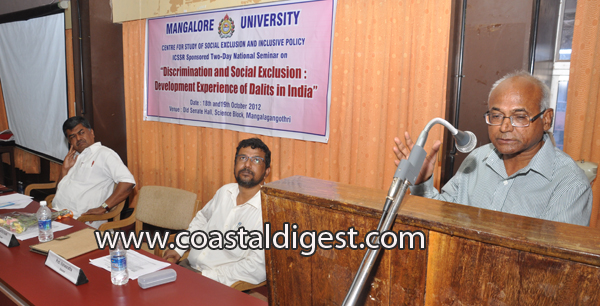
Mangalore, October 20: Putting forth a solution to untouchability and caste discrimination, academician and writer Kancha Illaiah said the problem will be rectified if the discrimination in the temples cease.
Delivering the valedictory talk at the final day of the national seminar on “Discrimination and social exclusion: a study on the development experience of Dalits in Karnataka” held at Mangalore University, Mr. Illaiah said scriptures and superstitions propagated caste discrimination that continued on the political space in the country.
“Unlike other countries where discrimination comes out of human characteristics (like colour), the discrimination in India comes out of spirituality. Hindu gods view people as unequal and hence teachers view students as unequal and practise discrimination. When I was growing up, a superstition was imbibed among Dalit families that Goddess Saraswati would kill non-Brahmin and non-Bania students who were studying in school. The political system is an evolution of the spiritual system,” he said.
The “solution”, he said, was to announce 50 per cent reservation for priests in temples, which would see Dalits having access to the sanctum sanctorum of the temple and ergo, access to “god”.
The power of religion over the people was seen during Ramzaan where a diktat in the Koran could command millions of people to ritually starve, Mr. Illaiah said. “Can any constitutional law bring out such obedience?”
He urged researchers of the Centre for Study of Social Exclusion and Inclusive Policy, Mangalore University, which organised the seminar, to write about Dalit history and “village technologies” in leather and other industries where Dalits were traditionally in a majority. “Spiritual knowledge says Dalits are unintelligent. This can be proven wrong by cataloguing the technologies invented by the Dalits who made shoes, houses, beds, and discovered food cultures,” said Mr. Illaiah.
The former Member of Parliament B.K. Hari Prasad said it was a “tough job to rectify 5,000 years of social wrong”. “Independence has given freedom only to the rich and the high caste,” he said.
The eradication of untouchability could not be achieved only through the political system with its numerous laws, but needed a change in societal attitude.
He rued the dwindling public sector which through its strictly implemented reservation system had ensured jobs to thousands of Scheduled Castes and Scheduled Tribes employees.
“The private sector has almost entirely replaced the government sector. But they have done nothing for community development,” said Mr. Prasad.
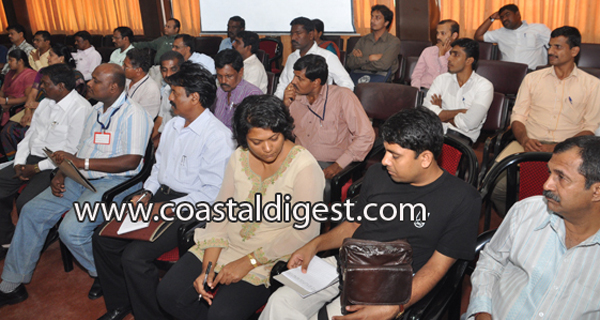
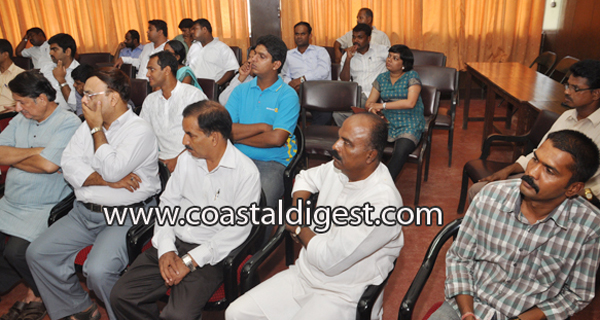
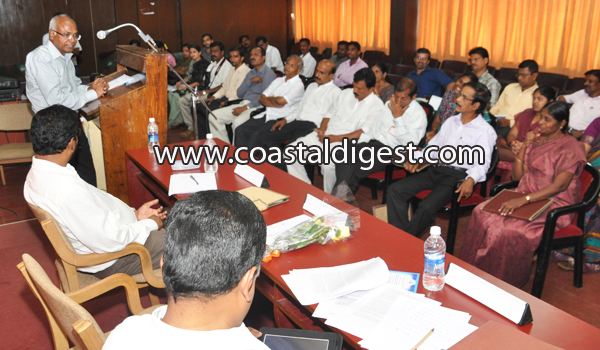
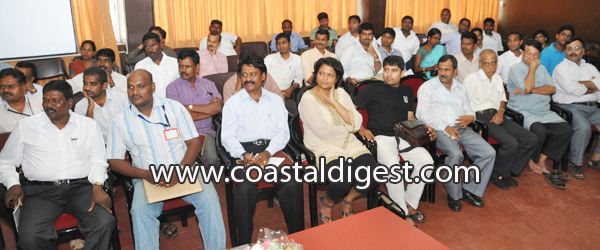






Comments
Add new comment